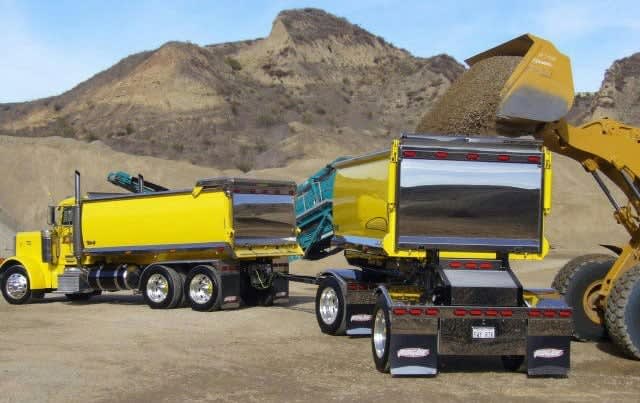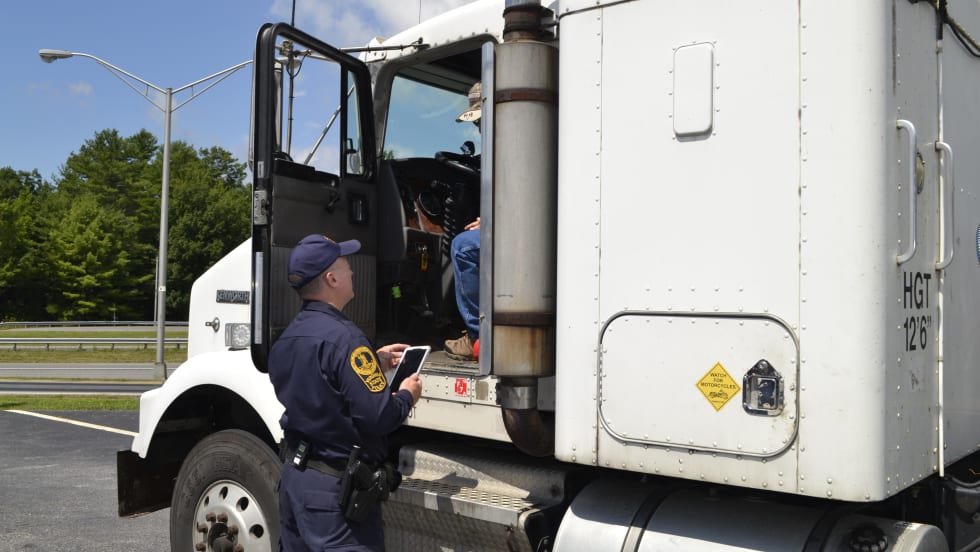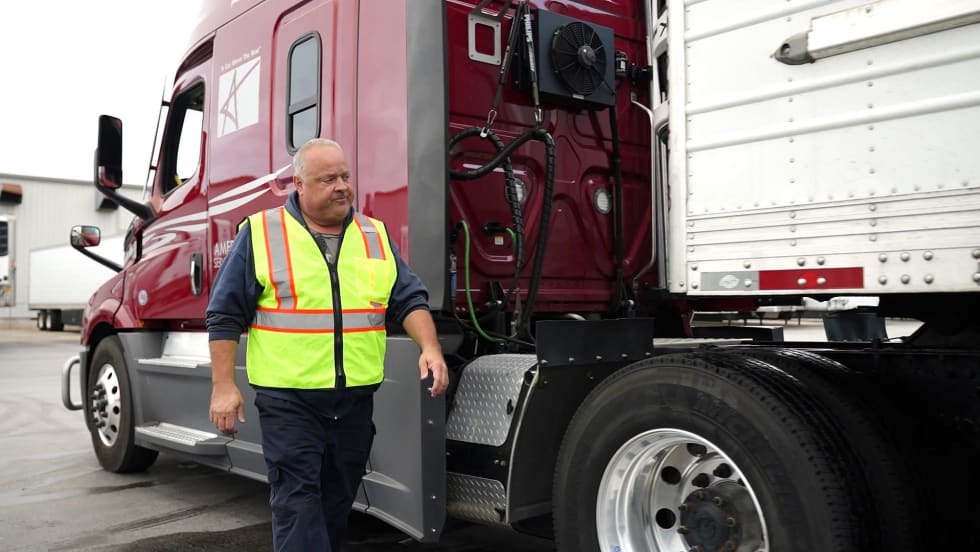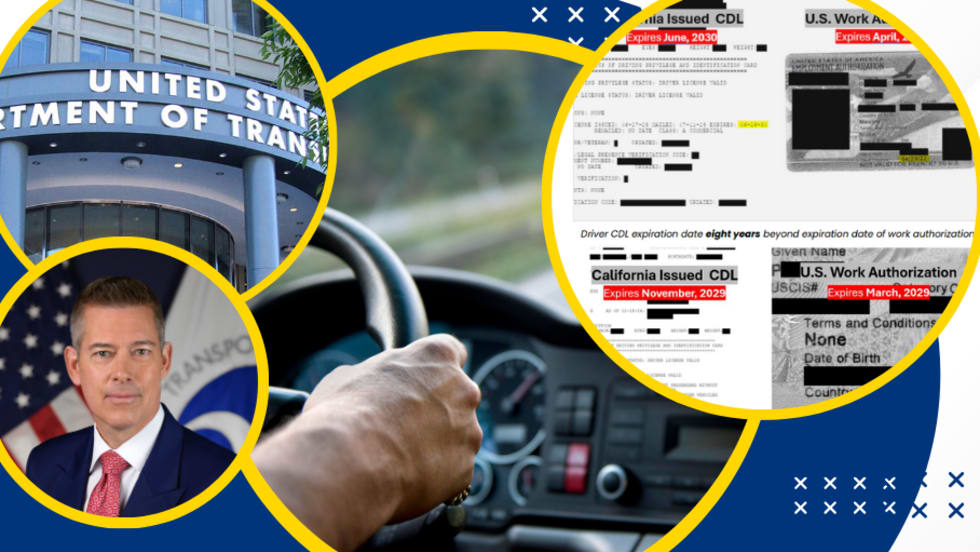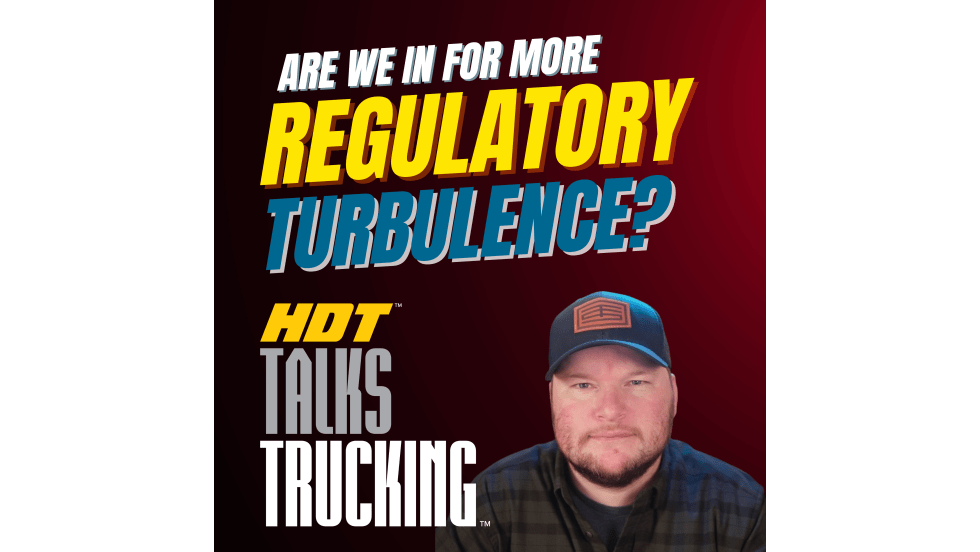California’s governor is expected to sign a new law that critics say would make it difficult, if not impossible, for trucking companies in the state to use independent contractor owner-operator truck drivers.
California’s governor is expected to sign into law a bill that critics say would make it difficult, if not impossible, for trucking companies in the state to use independent contractor owner-operator truck drivers.
If signed into law, Assembly Bill 5 “will put tens of thousands of owner-operator truckers, who service agriculture, retail and other industry sectors, out of business," said the California Trucking Association in a press release.
AB 5 originally passed the California State Assembly back in May, and was passed late in the evening Sept. 10 by the state Senate. It codifies last year’s Dynamex California Supreme Court decision into law, establishing an ABC test to determine status of an independent contractor that would all but eliminate the owner-operator model in the state. According to published reports, Democratic Gov. Gavin Newsom has signaled support for the measure, which would take effect on Jan. 1.
It started with Dynamex
The state supreme court last year ruled in a case involving Dynamex, a courier company, that certain workers should be presumed employees instead of independent contractors when evaluating wage and hour classification in class action cases. The ruling required companies to use a newly adopted ABC test to determine who is an independent contractor, which consists of certifying:
A That the worker is free from the control and direction of the hiring entity in connection with the performance of the work, both under the contract for the performance of the work and in fact;
B That the worker performs work that is outside the usual course of the hiring entity’s business; and
C That the worker is customarily engaged in an independently established trade, occupation, or business of the same nature as the work performed.
“Most legal analysis of the ruling agrees the ABC test sets an impossible standard for most of our members to meet,” the Western States Trucking Association told its members last May, with the sticking point being the “B” provision.
Joel M. Van Parys, an attorney with Carothers DiSante & Freudenberger, explained in an analysis for Truckinginfo.com before AB5’s passage that “in order to pass 'prong B' of the Dynamex test, a company must show that a worker is performing work outside of the usual course of the company’s business. If a company’s business is trucking, transportation or logistics, then it will be very difficult for truck drivers to pass this part of the test. In addition, the drivers would have to have independently established businesses or provide trucking services to other companies.”
The Los Angeles Times, which called AB5 a “sweeping bill rewriting California employment law,” explained that while the Dynamex decision applied only to rules governing minimum wages, overtime and meal and rest breaks, AB 5 goes further. The legislation would entitle those classified as employees under the ABC test to benefits such as workers’ compensation, unemployment and disability insurance, paid sick days and family leave.
The legal firm Scopelitis, Garvin, Light, Hanson & Feary, in an email alert, noted that other than some owner-operators providing services in the construction industry, trucking and gig-economy companies did not receive stand-alone exemptions, “making it likely that such businesses will be subject to the ABC test unless they can satisfy the difficult business-to-business exception.”
Construction exception
One amendment in the bill allows drivers working within the construction industry to continue operating as independent truckers for a two-year grace period, according to CTA.
Joe Rajkovacz, director of governmental affairs for the Western States Trucking Association, told HDT in an interview that some of its members, many of whom are in the construction industry, might have a path forward thanks to a deal cut by United Contractors with organized labor. “The only way for an owner-operator in construction trucking to exist – we’re talking someone with their own authority – is they have to contract directly with a contractor licensed by the state of California. That as you can imagine has all of our broker members fit to be tied.”
‘The sins of the few’
The bill was pushed by labor unions, who have long wanted to organize drivers at the state ports, but cannot because federal law prohibits independent contractors from joining unions.
And there is little doubt that there are some trucking companies in the state who have abused the independent contractor model, as highlighted in what the industry criticized as a lopsided USA Today report in late 2017.
However, AB5 took a broad-brush approach in banning the use of independent contractors rather than addressing the abuses.
“The sins of the few have been extrapolated to the many, and that’s unfair,” Rajcovacz told HDT.
The state’s trucking industry had sought to work with legislators to carve out an exception for legitimate independent contractors. Many workers were exempted, among them doctors, dentists, lawyers, engineers, accountants, architects, Realtors, travel agents, graphic designers, and investment advisors – but not trucking, nor “gig” workers such as those for Uber and Lyft.
“AB 5 could have been amended to address worker misclassification issues, as well as protect the 70,000 predominantly minority-owned truckers currently operating as independent contractors,” said Shawn Yadon, CEO of the California Trucking Association, in a press release issued by the association. “There is no reason why protecting workers does not include defending the right of tens of thousands of drivers who have built their businesses around the independent owner-operator model, invested hundreds of thousands of dollars in their trucks and have operated their own businesses for decades.”
CTA had advocated for changes to AB 5 that would still allow legitimate trucking owner-operators, including requirements for operating authority, ownership of vehicles, exclusivity and transparency about pay. “These changes would have set a clear criterion and established independence in a way that protected employees from misclassification without hurting entire sectors of the business community,” CTA’s release said.
In an interview, Yadon told HDT that the bill does not distinguish between a driver who's acting as an independent contractor under a truck lease-purchase program and one who owns his or her own truck outright, independent of a deal with the motor carrier they drive for. “It virtually destroys the independent contractor model for trucking," he said.
When asked if he thought legislators truly understood what they were doing to the trucking industry, Yadon told HDT, “The predominant voice of the truckers in Sacramento have been from the owner-operators.... I believe that awareness was made clear [to legislators], not only by the CTA, but also by those dozens and dozens of owner-operators who showed up at committee hearings and testified, gave their own story of how they were building their businesses. So I believe it was pretty clearly stated from a variety of sources, and most importantly from the independent drivers themselves. I would not say there was a lack of understanding.”
In California, more than 136,950 trucking companies remain primarily small, locally owned business with small fleets and independent drivers, according to CTA.
What will owner-operators and motor carriers do?
Meanwhile, motor carriers and owner-operators are left trying to figure out a strategy for what to do next.
“AB 5 will have implications that will go beyond employment classification,” said Yadon in the release. “Like the rest of the nation, California is experiencing a shortage of truck drivers, this measure will aggravate the problem by removing thousands of drivers from rosters as many have indicated they will move to other states or seek a different line of work all together.”
In fact, Rajkovacz told HDT, he heard from owner-operators earlier this year that Swift Transportation was already terminating owner-operator leases in the state.
Bill Aboudi, owner of AB Trucking, a small drayage company based in Oakland, California, and a member of the HDT Editorial Advisory Board, told HDT via email that his company owns its trucks and uses employee drivers, but it uses owner-operators for peak volume or bidding on accounts that its trucks can’t handle.
“It will have an impact on us accepting more work,” he said. But the majority of drayage companies in the state use the independent contractor model, he said. “Most of the companies are pure owner-operator companies [that] will be destroyed, and the owner-operators will have no place to go – a complete disaster.”
So far, he said, most of the owner-operators at the Oakland port (some 90% of the 9,000 trucks operating out of the port) are not aware of the bill and what it means, “or don’t think it applies to them, because the media is leading with headlines like ‘gig economy’ or Uber/Lyft.”
What’s next?
“It’s not over,” Rajkovacz told HDT. There are still efforts to fight this, including via litigation, legislation, and a push to put it on the ballot for a public vote.
Litigation: WSTA and CTA had both filed lawsuits challenging the state Supreme Court’s Dynamex Decision. Last week, WSTA announced it was dropping its challenge, believing that the CTA suit and others would have a better chance. The CTA suit in fact had been put on hold by a judge while the WSTA suit was moving forward. Yadon confirmed that CTA’s suit was expected to move forward in the near future.
Legislation: Rajkovacz said there is discussion of some sort of amending bill in the works, but that is about newspaper delivery people. “Certainly some people hope it’s trucking’s last attempt to get some sort of carve-out,” he told HDT, but he felt those chances were slim.
The legislation’s sponsor, Assemblymember Gonzalez, has suggested she remains open to business-favorable changes or clarifications in next year’s legislative session.
Ballot issue: According to USA Today, “even before the measure passed, Uber, Lyft, and food delivery company DoorDash invested a collective $90 million to bring the issue to voters as a proposition on the next ballot. Their plan preserves independent contractor status of their workers while offering basic protections and benefits, including a minimum earnings floor, access to health care plans not tied to their employment, and representation in the companies to better address issues.”
“Labor has a lot of money, but they don’t have the money Silicon Valley has," Rajkovacz told HDT. “If they run a ballot measure just to protect their industries, I think they’d lose. But if it’s a broad-based appeal to essentially overturn AB5, this could get real interesting.”




